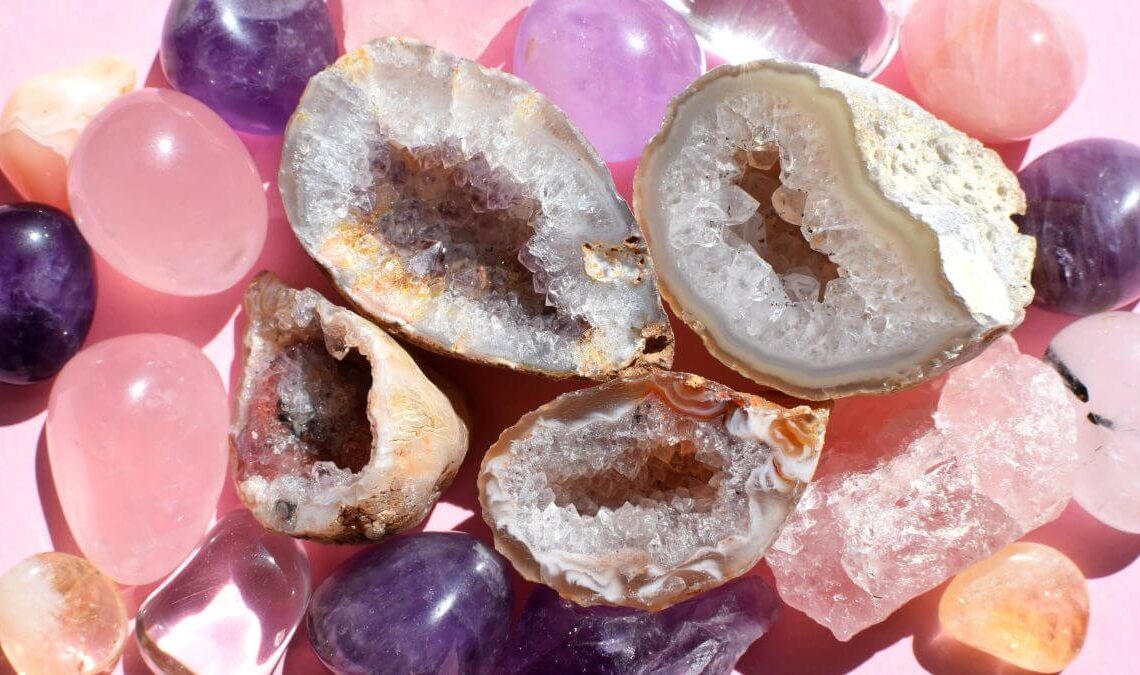
Gemstones hold a significant place in human history and culture. These naturally occurring minerals have been cherished and revered for their beauty, rarity, and symbolic meanings. From jewelry to healing practices, gemstones have found their place in various aspects of human life.
Popular Gemstones and Their Characteristics
There is a wide variety of gemstones available, each with its own unique characteristics. Some popular gemstones include diamonds, rubies, emeralds, sapphires, amethysts, and topaz. Diamonds are renowned for their brilliance and durability, while rubies exhibit a vibrant red color. Emeralds are prized for their rich green hues, and sapphires come in a range of colors, with blue being the most well-known. Amethysts feature a beautiful purple color, and topaz can be found in a spectrum of hues.
1. Use of Gemstones in Jewelry
One of the most common and well-known uses of gemstones is in jewelry. Gemstones are cut, polished, and set into various types of jewelry, including rings, necklaces, earrings, and bracelets. They add a touch of elegance and sophistication to any piece of jewelry, making it both visually appealing and emotionally valuable.
2. Use of Gemstones in Healing Practices
Gemstones have been associated with healing and spiritual practices for centuries. Many believe that gemstones possess metaphysical properties that can influence emotions, energy, and overall well-being. For example, amethyst is thought to promote calmness and clarity, while rose quartz is associated with love and compassion. These gemstones are often used in alternative healing therapies like crystal therapy and chakra balancing.
3. Gemstones as Investments
Gemstones have also been considered as investment assets. Certain gemstones, particularly those of exceptional quality and rarity, can appreciate in value over time. Investors and collectors seek out gemstones as a hedge against inflation and diversification of their portfolios. However, it is essential to have expert knowledge or seek professional advice when venturing into gemstone investments.
4. Gemstones in Cultural and Historical Contexts
Gemstones hold great cultural and historical significance in many civilizations. They have been used as symbols of power, wealth, and prestige. For example, the crown jewels of royal families often feature gemstones of great historical value. Gemstones have also played roles in religious ceremonies, rituals, and folklore, adding depth and meaning to cultural practices.
5. Gemstones as Decorative Objects
Apart from jewelry, gemstones are used as decorative objects in various forms. They can be found adorning sculptures, furniture, and even architectural elements. Gemstones, with their vibrant colors and lustrous appearance, add a touch of opulence and splendor to any decorative piece.
6. Gemstones in Technology
Gemstones find applications in various technological fields. Their unique physical and optical properties make them valuable in areas such as lasers, telecommunications, and scientific instruments. For instance, rubies are used as laser gain media, while quartz crystals are utilized in electronic devices due to their piezoelectric properties.
7. Gemstones in Astrology and Spiritual Practices
Gemstones have long been associated with astrological beliefs and spiritual practices. In astrology, different gemstones are believed to resonate with specific zodiac signs and have a positive influence on an individual’s life. For example, garnet is associated with the zodiac sign of Capricorn and is believed to bring success and protection.
Furthermore, gemstones are used in spiritual practices like meditation and energy healing. Each gemstone is believed to possess its own energetic properties that can support emotional well-being and spiritual growth. By wearing or holding gemstones during meditation or healing sessions, individuals seek to align their energy and experience a sense of balance and harmony.
8. Gemstones in Folklore and Mythology
Gemstones have often been shrouded in folklore and mythology, adding a touch of mystery and enchantment to their allure. Throughout history, gemstones have been associated with various legends, stories, and beliefs.
For instance, in ancient Indian mythology, it is believed that diamonds were created when lightning struck rocks. Diamonds were considered sacred and were thought to bring strength and protection to the wearer.
In Greek mythology, the gemstone amethyst was associated with the god Dionysus. According to the legend, Dionysus transformed a mortal maiden into a clear quartz crystal to protect her from the wrath of the gods. The crystal turned purple, and thus, amethyst was born. It was believed to possess powers that prevented intoxication and promoted clarity of mind.
9. Gemstone as Unique Gifts and Collectibles
Gemstones make exceptional gifts for special occasions and milestones. They are timeless and carry sentimental value, making them cherished keepsakes. Birthstone jewelry, for example, is a popular gift choice that holds personal significance based on the recipient’s birth month.
Additionally, gemstones are sought after by collectors who appreciate their rarity and beauty. Collecting gemstones can be a passion and a way to appreciate the earth’s natural treasures. Gemstone collectors often acquire specimens of exceptional quality or unique characteristics that add to the value and allure of their collection.
Conclusion
Gemstones have a timeless allure that transcends boundaries and cultures. They are not only objects of beauty but also hold historical, cultural, and spiritual significance. Whether adorning jewelry, used in healing practices, or finding applications in technology, gemstones continue to captivate and inspire. Embrace the allure of gemstones and discover the enchantment they bring to your life.
FAQs
Are all gemstones precious?
Not all gemstones are considered precious. While precious gemstones, such as diamonds, rubies, emeralds, and sapphires, are rare and highly valued, there are also semi-precious gemstones like amethyst, topaz, and garnet that have their own unique beauty and appeal.
How can I determine the authenticity of a gemstone?
Authenticating gemstones can be complex, and it is often best to consult with a certified gemologist or reputable jeweler. They can evaluate the gemstone’s physical characteristics, conduct tests, and provide a professional assessment of its authenticity.
Can gemstones lose their value over time?
The value of gemstones can be influenced by various factors such as rarity, quality, market demand, and trends. While some gemstones may appreciate in value over time, others may experience fluctuations. It is essential to research and understand the specific gemstone’s market dynamics before making any assumptions about its long-term value.
Are synthetic gemstones as valuable as natural ones?
Synthetic gemstones, although they possess similar optical and physical properties as natural gemstones, are generally less valuable in terms of rarity and historical significance. Natural gemstones hold a unique allure and are often sought after for their authenticity and natural beauty.
Where can I purchase authentic gemstones?
Authentic gemstones can be purchased from reputable jewelers, gemstone dealers, or auction houses. It is important to ensure that the seller provides proper certification or guarantees the authenticity of the gemstone, especially for high-value

